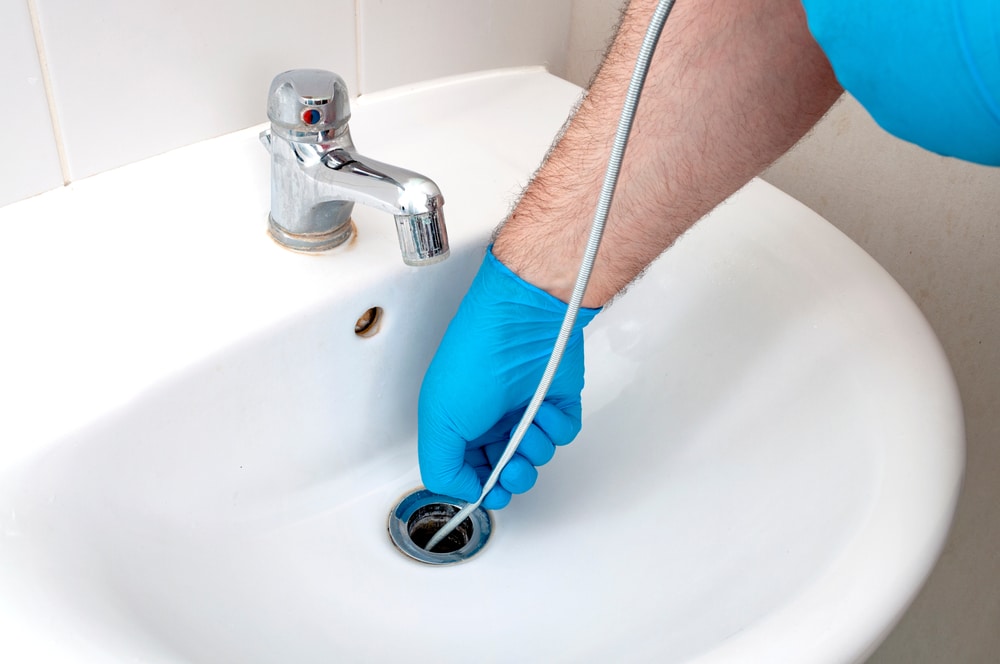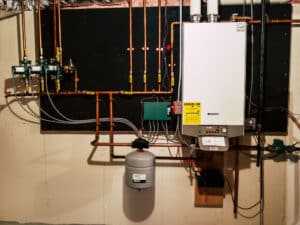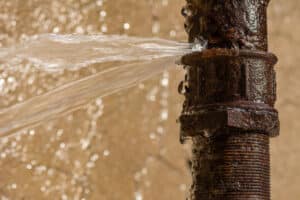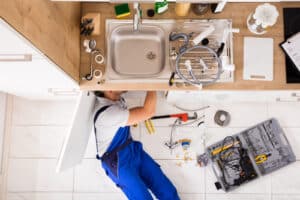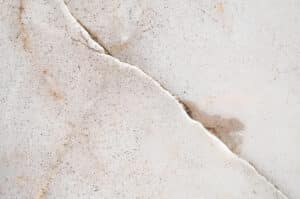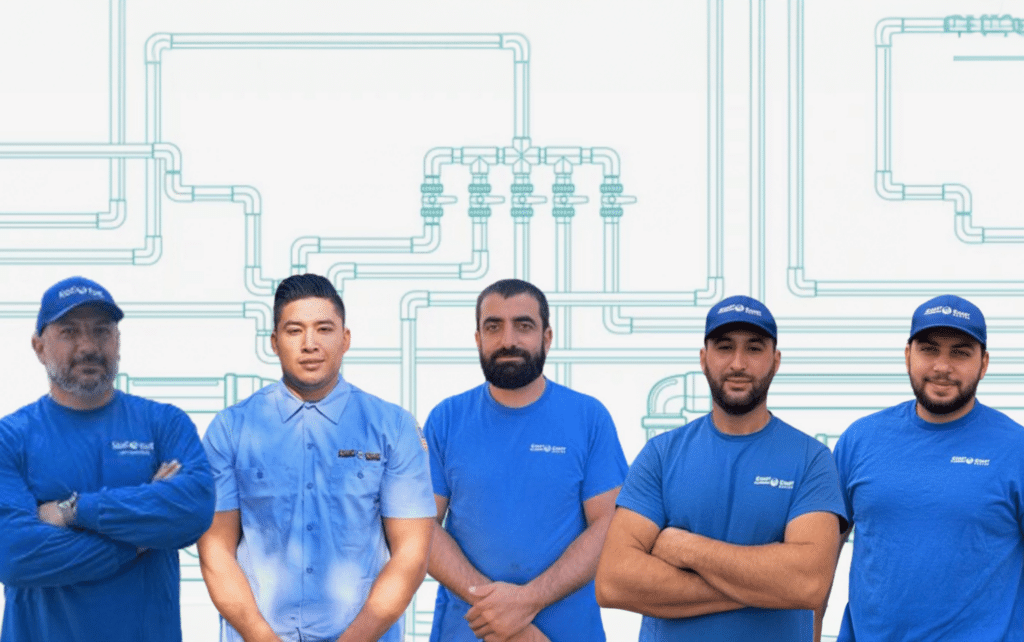Keeping your drains clean is essential to maintaining your Los Angeles home. Forgetting this simple task can lead to troublesome clogs and unpleasant odors. Regular drain maintenance is not complicated; adopting a few simple habits can make a big difference.
This article will explore easy ways to keep your drains clear and running smoothly. From identifying common causes of clogs to using natural cleaning methods, you’ll learn how to effectively care for your plumbing system. Let’s dive in and find out how you can keep your drains sparkling clean.
Common Causes of Drain Clogs in Los Angeles Homes
Drain clogs are a common nuisance for many homeowners in Los Angeles. Understanding what causes these clogs can help you prevent them in the first place. Here are some frequent culprits that cause drains to back up:
1. Hair and Soap Scum
In the bathroom, hair and soap scum are the leading causes of clogs. As hair sheds during showers, it can combine with soap to form sticky clumps, blocking the drain over time.
2. Food Waste
Food particles cause a large portion of kitchen clogs. Even if you have a garbage disposal, items like coffee grounds, eggshells, and starchy foods can create blockages.
3. Grease Buildup
Pouring grease or oil down the sink may seem harmless when hot, but it solidifies as it cools, sticking to pipe walls and causing clogs.
4. Foreign Objects
Sometimes, small objects accidentally fall into drains and get stuck. This is common in homes with kids where toys and other items can find their way into sinks or toilets.
5. Tree Roots
Though not inside the house, tree roots outside can invade underground pipes, searching for moisture and causing significant blockages.
Recognizing these common causes can help you adopt best practices to avoid them. By being mindful of what goes into your pipes, you can maintain a healthy plumbing system and keep your drains clear for longer.
Everyday Habits for Cleaner Drains
Maintaining clean drains requires a few simple habits to incorporate into your daily routine easily. These small steps can go a long way in preventing clogs and ensuring smooth wastewater flow throughout your home.
1. Use Drain Strainers
Place strainers over shower and sink drains to catch hair, soap pieces, and food particles. This simple tool helps prevent most debris from entering the pipes.
2. Dispose of Grease Properly
Instead of pouring grease down the sink, let it cool and solidify, then discard it in the trash. This prevents greasy buildup in your pipes.
3. Mindful Flushing and Draining
Only flush water, waste, and toilet paper. Avoid letting food waste in sinks, particularly fibrous or starchy materials, go down the drain.
4. Regular Rinsing
Flush drains with hot water once a week to help clear deposits. For an extra cleaning boost, pour a mix of baking soda and vinegar down the drain, wait a few minutes, and then rinse with hot water.
5. Clean Stoppers and Strainers
Hair and debris can accumulate on drain stoppers and strainers. Regularly clean these items to ensure they function correctly.
Adopting these habits helps reduce the risk of clogs and keeps your plumbing system running efficiently. Making these actions part of your routine adds longevity to your drains and saves you the frustration and cost of dealing with blockages. Maintaining your drains with these simple habits takes little time but offers great rewards.
Natural Alternatives to Chemical Cleaners
Many homeowners rely on chemical cleaners to tackle drain clogs, but these harsh solutions can damage pipes and the environment. Fortunately, natural alternatives can effectively clean your drains without adverse side effects. Here are some eco-friendly methods to consider:
1. Baking Soda and Vinegar
This dynamic duo is excellent for breaking down minor clogs and freshening drains. Pour half a cup of baking soda and half a cup of vinegar into the drain. Let the mixture fizz for 15–30 minutes, then rinse with hot water.
2. Boiling Water Flush
Sometimes, the simplest solutions are the best. Slowly pour a pot of boiling water down the drain. This can help dissolve and wash away light grease and build-up.
3. Salt and Baking Soda
Mix half a cup of salt with half a cup of baking soda. Pour it into the drain and let it sit for a few hours or overnight. Follow up with boiling water to help clear stubborn debris.
4. Plunger or Drain Snake
These tools provide a physical method to remove visible blockages. For larger debris, a plunger can create enough force to dislodge it. Drain snakes can reach further into pipes to pull out hidden clogs.
Switching to these natural solutions can help maintain clean drains while keeping your home and the environment safe. Regularly using these methods resolves existing issues and prevents future blockages, ensuring your plumbing remains efficient without resorting to harsh chemicals that could harm pipes or the ecosystem.
When to Call a Professional for Drain Cleaning
While DIY methods can handle minor clogs, some situations require the expertise of a professional. Knowing when to call in a pro can prevent long-term damage and costly repairs. Here’s when you should consider seeking help from drain-cleaning experts:
1. Persistent Clogs
If you’ve tried multiple methods and the blockage keeps returning, a deeper or more complex issue might need professional attention.
2. Foul Odors
Continuous bad smells from your drains might indicate decaying waste deep in the pipes or a potential sewer issue that could escalate if not addressed promptly.
3. Slow Draining
If water continues to drain slowly despite using DIY solutions, it may signal a build-up or damage that household remedies can’t fix.
4. Multiple Clogged Drains
If multiple drains in your home are backing up simultaneously, there is likely an issue in your main sewer line. Ignoring this can lead to severe plumbing problems.
5. Unusual Noises
Gurgling or bubbling sounds when water runs may highlight trapped air or blockages deeper in your system, needing expert intervention.
Calling a plumbing professional can help you address these signs before they become major problems. Trained experts have the tools and experience to efficiently diagnose and resolve these issues. Acting early with professional help is better than risking severe damage and costly repairs later.
Conclusion
Keeping your drains clear and functioning is crucial for a healthy home. By understanding the common causes of clogs, adopting daily maintenance habits, and using natural cleaning alternatives, you can effectively manage minor drain issues independently. However, recognizing when to call in a professional ensures that more complex problems are handled promptly and efficiently.
If your drains aren’t cooperating despite your best efforts, it might be time to seek professional coast plumbing solutions. Trust the Coast to Coast Plumbing and Rooter experts to provide thorough and effective drain cleaning services. With years of experience, we’re here to help keep your plumbing running smoothly. Contact us today for reliable solutions tailored to your needs!





